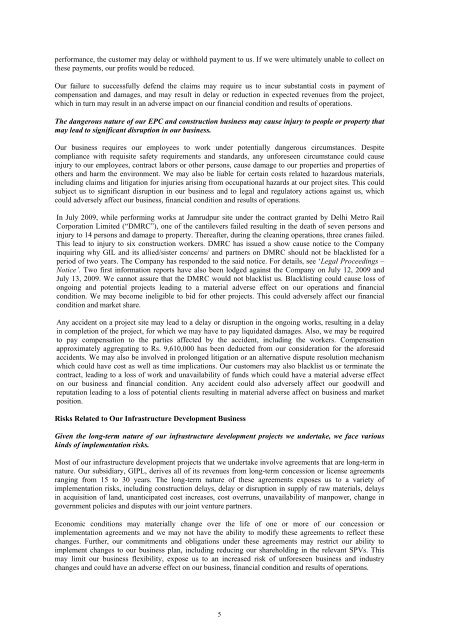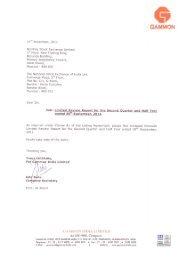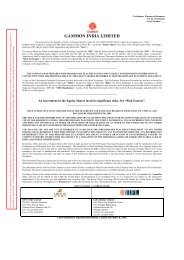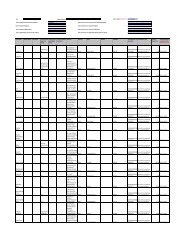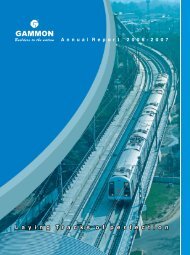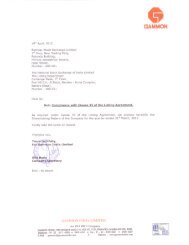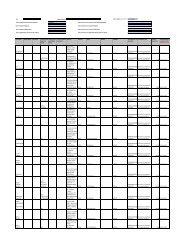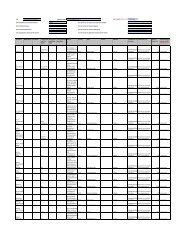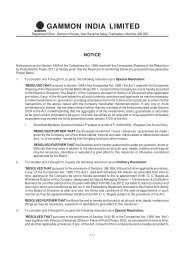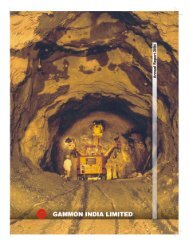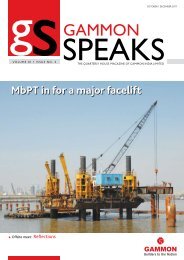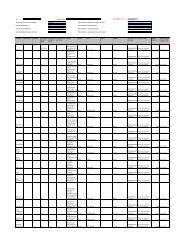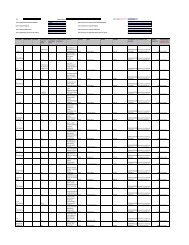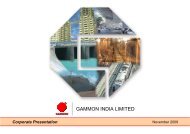GAMMON INDIA LIMITED
GAMMON INDIA LIMITED
GAMMON INDIA LIMITED
You also want an ePaper? Increase the reach of your titles
YUMPU automatically turns print PDFs into web optimized ePapers that Google loves.
performance, the customer may delay or withhold payment to us. If we were ultimately unable to collect on<br />
these payments, our profits would be reduced.<br />
Our failure to successfully defend the claims may require us to incur substantial costs in payment of<br />
compensation and damages, and may result in delay or reduction in expected revenues from the project,<br />
which in turn may result in an adverse impact on our financial condition and results of operations.<br />
The dangerous nature of our EPC and construction business may cause injury to people or property that<br />
may lead to significant disruption in our business.<br />
Our business requires our employees to work under potentially dangerous circumstances. Despite<br />
compliance with requisite safety requirements and standards, any unforeseen circumstance could cause<br />
injury to our employees, contract labors or other persons, cause damage to our properties and properties of<br />
others and harm the environment. We may also be liable for certain costs related to hazardous materials,<br />
including claims and litigation for injuries arising from occupational hazards at our project sites. This could<br />
subject us to significant disruption in our business and to legal and regulatory actions against us, which<br />
could adversely affect our business, financial condition and results of operations.<br />
In July 2009, while performing works at Jamrudpur site under the contract granted by Delhi Metro Rail<br />
Corporation Limited (“DMRC”), one of the cantilevers failed resulting in the death of seven persons and<br />
injury to 14 persons and damage to property. Thereafter, during the cleaning operations, three cranes failed.<br />
This lead to injury to six construction workers. DMRC has issued a show cause notice to the Company<br />
inquiring why GIL and its allied/sister concerns/ and partners on DMRC should not be blacklisted for a<br />
period of two years. The Company has responded to the said notice. For details, see ‘Legal Proceedings –<br />
Notice’. Two first information reports have also been lodged against the Company on July 12, 2009 and<br />
July 13, 2009. We cannot assure that the DMRC would not blacklist us. Blacklisting could cause loss of<br />
ongoing and potential projects leading to a material adverse effect on our operations and financial<br />
condition. We may become ineligible to bid for other projects. This could adversely affect our financial<br />
condition and market share.<br />
Any accident on a project site may lead to a delay or disruption in the ongoing works, resulting in a delay<br />
in completion of the project, for which we may have to pay liquidated damages. Also, we may be required<br />
to pay compensation to the parties affected by the accident, including the workers. Compensation<br />
approximately aggregating to Rs. 9,610,000 has been deducted from our consideration for the aforesaid<br />
accidents. We may also be involved in prolonged litigation or an alternative dispute resolution mechanism<br />
which could have cost as well as time implications. Our customers may also blacklist us or terminate the<br />
contract, leading to a loss of work and unavailability of funds which could have a material adverse effect<br />
on our business and financial condition. Any accident could also adversely affect our goodwill and<br />
reputation leading to a loss of potential clients resulting in material adverse affect on business and market<br />
position.<br />
Risks Related to Our Infrastructure Development Business<br />
Given the long-term nature of our infrastructure development projects we undertake, we face various<br />
kinds of implementation risks.<br />
Most of our infrastructure development projects that we undertake involve agreements that are long-term in<br />
nature. Our subsidiary, GIPL, derives all of its revenues from long-term concession or license agreements<br />
ranging from 15 to 30 years. The long-term nature of these agreements exposes us to a variety of<br />
implementation risks, including construction delays, delay or disruption in supply of raw materials, delays<br />
in acquisition of land, unanticipated cost increases, cost overruns, unavailability of manpower, change in<br />
government policies and disputes with our joint venture partners.<br />
Economic conditions may materially change over the life of one or more of our concession or<br />
implementation agreements and we may not have the ability to modify these agreements to reflect these<br />
changes. Further, our commitments and obligations under these agreements may restrict our ability to<br />
implement changes to our business plan, including reducing our shareholding in the relevant SPVs. This<br />
may limit our business flexibility, expose us to an increased risk of unforeseen business and industry<br />
changes and could have an adverse effect on our business, financial condition and results of operations.<br />
5


